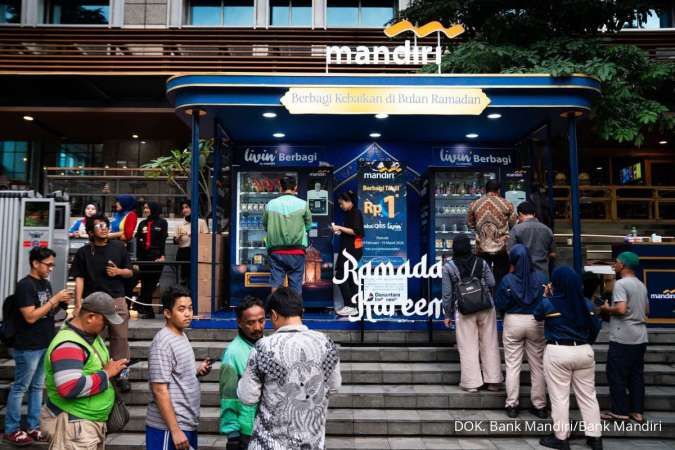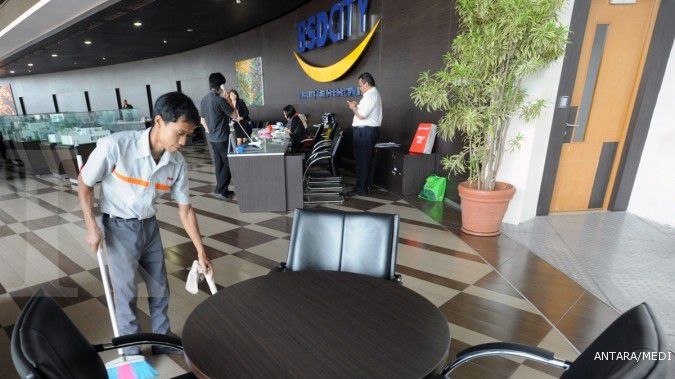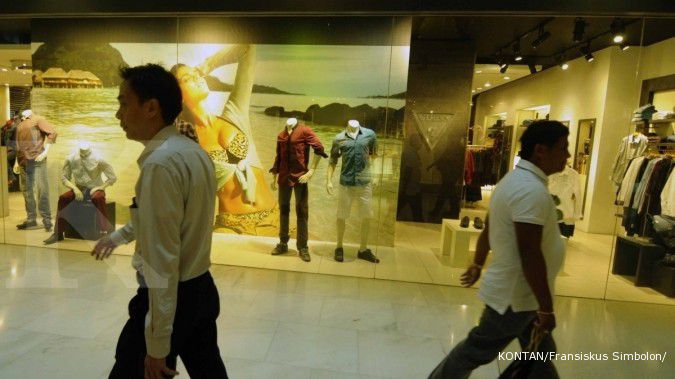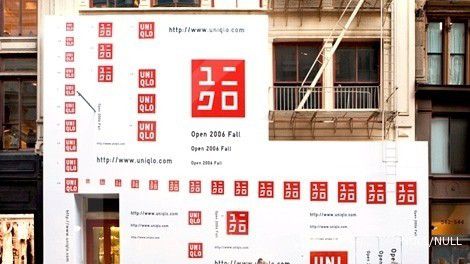The country is becoming a preferential place for glossy Asian fashion and lifestyle brands seeking to showcase their merchandise.Within a month, two large Japanese retailers, Fast Retailing Co. Ltd., the brand owner of UNIQLO, and AEON MALL Co. Ltd., have established their presence by setting up flagship stores here.Two other big department stores from Indonesia’s immediate neighbors, Parkson Retail Asia, headquartered in Malaysia, and Thailand-based Central Retail Corporation (CRC), are already looking to open their first stores here next year.AEON MALL CEO Soichi Okazaki said Indonesia’s rosy economy had drawn the retailer to the country this year.“The GDP [gross domestic product] of Indonesia grown beyond 6 percent during the past years and this factor influenced our decision,” he said.Indonesia is reportedly Southeast Asia’s largest economy. With a population exceeding 240 million, McKinsey estimates that 90 million people will be rated as “consumer class”, or people with annual income surpassing US$3,600, by 2030.AEON has partnered with domestic property developer, PT Sinar Mas Land, to form PT AMSL Indonesia. AMSL will operate the flagship AEON MALL, worth $200 million in its initial investment.The first AEON, located in BSD City — a residential estate owned by Sinar Mas — is scheduled for opening in 2014 while a second mall, to be located in Kota Deltamas, Bekasi, will open in 2015.Okazaki added that AEON was eying suburban hubs, turning away from urban markets jam-packed with competition.“We see the new, middle income family as a potential customer target,” he pointed out.Residential areas have been a draw for Parkson Retail Asia as well, yet the retailer has opted for urban dwellers.Datuk Alfred Cheng, group managing director of Parkson Retail Asia, said the company had picked the St. Moritz superblock, located in the Puri Indah, West Jakarta residential complex, as the location for the first Parkson department store, scheduled for opening in September 2014.As with other retailers, Parkson is eyeing the affluent section of society.“The Parkson store in Indonesia targets the upper-middle to upper income segment of the market,” he told The Jakarta Post.He added that the retailer sought to introduce Parkson to other first tier cities, including Medan and Surabaya.Parkson initially entered the domestic market with the Centro Department Store, which grew by 26 percent sales-wise between 2011 and 2012. The retailer, Cheng said, similarly planned to expand Centro, currently numbering nine, to at least 13 other cities.“We expect the full year 2013 sales growth to be in the strong teens,” he added.Yet, unlike other players, the Central Retail Corporation is heading straight into the urban heart by establishing a department store in the downtown Grand Indonesia Shopping Town, a mall located in the Thamrin business district in Central Jakarta.Murali Menon, shopping mall director of Grand Indonesia, said that the mall expected Central to draw “Indonesian shoppers hungry for something new”.He added the mall had decided to bring in Central at the request of shoppers who came across the brand during overseas trips.Central, with their “points of differentiation”, also felt the time was right to compete in the Indonesian market, he said.He added that Central — which will occupy a total floor space of 21,000 square-meters or 14 percent of leasable area of the east wing — would draw in shoppers once it opened in September 2014.The mall averaged a million visitors per month in 2012, up by 3 percent on 2011. “Central will introduce a whole new ball game in merchandising by stocking international, Thai and domestic brands,” he notedBesides Central, the mall will house the flagship H&M store, set to open in March 2014.Meanwhile, Cheng pointed out that the domestic market was “increasingly warming to Asian brands”, and Parkson too looked to carry a mix of international and Asian brands “depending on the demand and profile of our customers”. “One of the advantages of Asian brands is that they are more skewed to local Asian lifestyle and sizing will be spot-on,” he said.He added that “Asian brands are on a par with their international peers” in terms of quality.Yasuhiro Hayashi, director for business development in Southeast Asia at UNIQLO, added that the brand’s focus has always been on creating outfits that were “made for all” regardless of “national borders and differences in ethnic groups or culture”.He added the brand counted on its popularity in its home country to give it an edge over other brands that populated the domestic retail scene.“We believe that trust toward Japanese products, combined with UNIQLO’s popularity in Japan, have served as contributing factors to our expansion in Asia,” he said. The Jakarta Post
Asian brands focus on Indonesia fashion scene
The country is becoming a preferential place for glossy Asian fashion and lifestyle brands seeking to showcase their merchandise.Within a month, two large Japanese retailers, Fast Retailing Co. Ltd., the brand owner of UNIQLO, and AEON MALL Co. Ltd., have established their presence by setting up flagship stores here.Two other big department stores from Indonesia’s immediate neighbors, Parkson Retail Asia, headquartered in Malaysia, and Thailand-based Central Retail Corporation (CRC), are already looking to open their first stores here next year.AEON MALL CEO Soichi Okazaki said Indonesia’s rosy economy had drawn the retailer to the country this year.“The GDP [gross domestic product] of Indonesia grown beyond 6 percent during the past years and this factor influenced our decision,” he said.Indonesia is reportedly Southeast Asia’s largest economy. With a population exceeding 240 million, McKinsey estimates that 90 million people will be rated as “consumer class”, or people with annual income surpassing US$3,600, by 2030.AEON has partnered with domestic property developer, PT Sinar Mas Land, to form PT AMSL Indonesia. AMSL will operate the flagship AEON MALL, worth $200 million in its initial investment.The first AEON, located in BSD City — a residential estate owned by Sinar Mas — is scheduled for opening in 2014 while a second mall, to be located in Kota Deltamas, Bekasi, will open in 2015.Okazaki added that AEON was eying suburban hubs, turning away from urban markets jam-packed with competition.“We see the new, middle income family as a potential customer target,” he pointed out.Residential areas have been a draw for Parkson Retail Asia as well, yet the retailer has opted for urban dwellers.Datuk Alfred Cheng, group managing director of Parkson Retail Asia, said the company had picked the St. Moritz superblock, located in the Puri Indah, West Jakarta residential complex, as the location for the first Parkson department store, scheduled for opening in September 2014.As with other retailers, Parkson is eyeing the affluent section of society.“The Parkson store in Indonesia targets the upper-middle to upper income segment of the market,” he told The Jakarta Post.He added that the retailer sought to introduce Parkson to other first tier cities, including Medan and Surabaya.Parkson initially entered the domestic market with the Centro Department Store, which grew by 26 percent sales-wise between 2011 and 2012. The retailer, Cheng said, similarly planned to expand Centro, currently numbering nine, to at least 13 other cities.“We expect the full year 2013 sales growth to be in the strong teens,” he added.Yet, unlike other players, the Central Retail Corporation is heading straight into the urban heart by establishing a department store in the downtown Grand Indonesia Shopping Town, a mall located in the Thamrin business district in Central Jakarta.Murali Menon, shopping mall director of Grand Indonesia, said that the mall expected Central to draw “Indonesian shoppers hungry for something new”.He added the mall had decided to bring in Central at the request of shoppers who came across the brand during overseas trips.Central, with their “points of differentiation”, also felt the time was right to compete in the Indonesian market, he said.He added that Central — which will occupy a total floor space of 21,000 square-meters or 14 percent of leasable area of the east wing — would draw in shoppers once it opened in September 2014.The mall averaged a million visitors per month in 2012, up by 3 percent on 2011. “Central will introduce a whole new ball game in merchandising by stocking international, Thai and domestic brands,” he notedBesides Central, the mall will house the flagship H&M store, set to open in March 2014.Meanwhile, Cheng pointed out that the domestic market was “increasingly warming to Asian brands”, and Parkson too looked to carry a mix of international and Asian brands “depending on the demand and profile of our customers”. “One of the advantages of Asian brands is that they are more skewed to local Asian lifestyle and sizing will be spot-on,” he said.He added that “Asian brands are on a par with their international peers” in terms of quality.Yasuhiro Hayashi, director for business development in Southeast Asia at UNIQLO, added that the brand’s focus has always been on creating outfits that were “made for all” regardless of “national borders and differences in ethnic groups or culture”.He added the brand counted on its popularity in its home country to give it an edge over other brands that populated the domestic retail scene.“We believe that trust toward Japanese products, combined with UNIQLO’s popularity in Japan, have served as contributing factors to our expansion in Asia,” he said. The Jakarta Post





